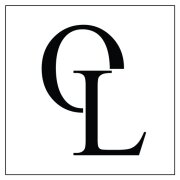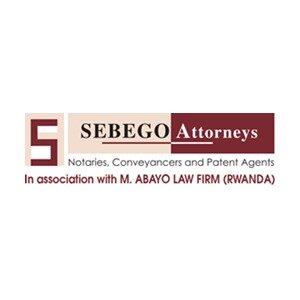Best Debt & Collection Lawyers in Botswana
Share your needs with us, get contacted by law firms.
Free. Takes 2 min.
Or refine your search by selecting a city:
List of the best lawyers in Botswana
About Debt & Collection Law in Botswana
The field of Debt & Collection law in Botswana deals with the regulation and practices of collecting debts owed by individuals or businesses. It encompasses a variety of processes that creditors may use to recover funds, including legal proceedings and negotiations between the debtor and the creditor. The law aims to balance the interests of both debtors and creditors, ensuring that debts are collected in a fair, lawful manner while protecting debtor's rights. In Botswana, debt collection is governed by common law principles and specific statutes, providing structured procedures for the recovery of debts.
Why You May Need a Lawyer
Engaging a lawyer in debt and collection matters can greatly influence the outcome of your case. Situations that may necessitate legal assistance include receiving a court summons for an unpaid debt, facing bankruptcy, contesting a debt's validity, dealing with aggressive collection practices, or needing advice on restructuring debt. Lawyers can provide representation in court, negotiate with creditors, and offer strategic advice on managing or disputing debts, ensuring that your legal rights are upheld throughout the process.
Local Laws Overview
Debt and collection practices in Botswana are subject to several laws and regulations, each with their own key provisions. The Magistrate Courts, under the Magistrates’ Courts Act, typically handle smaller debt disputes, whereas larger cases may go to the High Court. The Debtors Act provides a framework for handling insolvency, while the Prescription Act outlines time limits for debt recovery. Furthermore, Botswana's Consumer Protection Act offers recourse for consumers harassed or subjected to unfair collection practices. It is important to recognize the statute of limitations for different types of debts and the lawful avenues available for creditors and debtors alike.
Frequently Asked Questions
What is the statute of limitations on debt in Botswana?
The Prescription Act details that standard debt claims typically become prescribed after three years, meaning the creditor loses the ability to enforce the debt through court action if not pursued within this timeframe.
Can creditors charge interest on outstanding debts in Botswana?
Yes, creditors can charge interest on outstanding debts as per the agreement's terms or the legal interest rates established by Botswana's law. It’s essential to understand the interest terms agreed upon at the outset.
What are my rights if I am being harassed by a debt collector?
Under Botswana's Consumer Protection Act, debt collectors are prohibited from using abusive, unfair, or deceptive practices. You have the right to demand that unlawful contact ceases and to report any such behavior to relevant authorities.
What steps can creditors take to recover debts?
Creditors may negotiate payment plans, employ debt collection agencies, or initiate court proceedings to obtain a judgment against the debtor. Once a judgment is made, enforcement mechanisms such as garnishment of wages or attachment of assets may be used.
Can a court judgment be challenged or appealed in debt cases?
Yes, a debtor can appeal a court judgment; however, appeals must usually be based on procedural errors or legal misinterpretations rather than simply disputing the debt itself. Legal advice should be sought promptly to understand the grounds and process for appeal.
Is it possible to settle a debt for less than the full amount owed?
Yes, through negotiation with the creditor, it's possible to agree on a settlement that allows for paying less than the full amount. This often depends on the debtor's financial circumstances and the creditor’s willingness to compromise.
What happens if I ignore a debt collection notice?
Ignoring a debt collection notice can lead to legal action from the creditor, resulting in a court order requiring repayment, potentially including interest and legal fees, and enforcement measures like asset seizure.
How does bankruptcy affect debt collection in Botswana?
Bankruptcy may provide relief from certain debts, but it has serious consequences for your financial standing and future creditworthiness. It’s a formal process, usually requiring comprehensive legal and financial guidance.
Can I represent myself in debt collection proceedings?
While it’s possible to represent oneself, it’s generally advisable to seek legal counsel, given the complexity and formal nature of legal procedures involved in debt collection issues to effectively protect your interests.
How are cross-border debts handled in Botswana?
Cross-border debts involve additional layers of complexity, requiring coordination with foreign jurisdictions. Generally, creditors may seek enforcement of foreign judgments or use international treaties that Botswana is a party to.
Additional Resources
Several resources are available for individuals seeking assistance with debt and collection matters in Botswana. The Law Society of Botswana can help you find legal representation. The Ministry of Investment, Trade and Industry and Botswana’s Competition and Consumer Authority offer guidance and support for consumer-related issues, including unfair debt collection practices. Financial counseling services may also provide assistance and advice on managing debts effectively.
Next Steps
If you need legal assistance regarding debt and collection in Botswana, it is crucial to seek professional legal advice promptly. Start by documenting all interactions with creditors and gathering relevant documents regarding the debt. Consult with a qualified attorney who specializes in debt collection law to assess your situation and develop a strategy to address your concerns. Consider contacting local legal aid organizations if you require financial assistance in securing legal representation. Stay informed about your rights and responsibilities to navigate the debt recovery process more effectively.
Lawzana helps you find the best lawyers and law firms in Botswana through a curated and pre-screened list of qualified legal professionals. Our platform offers rankings and detailed profiles of attorneys and law firms, allowing you to compare based on practice areas, including Debt & Collection, experience, and client feedback.
Each profile includes a description of the firm's areas of practice, client reviews, team members and partners, year of establishment, spoken languages, office locations, contact information, social media presence, and any published articles or resources. Most firms on our platform speak English and are experienced in both local and international legal matters.
Get a quote from top-rated law firms in Botswana — quickly, securely, and without unnecessary hassle.
Disclaimer:
The information provided on this page is for general informational purposes only and does not constitute legal advice. While we strive to ensure the accuracy and relevance of the content, legal information may change over time, and interpretations of the law can vary. You should always consult with a qualified legal professional for advice specific to your situation.
We disclaim all liability for actions taken or not taken based on the content of this page. If you believe any information is incorrect or outdated, please contact us, and we will review and update it where appropriate.
Browse debt & collection law firms by city in Botswana
Refine your search by selecting a city.














